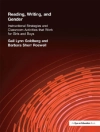In the 1970s, Northern Soul held a pivotal position in British youth culture. Originating in the English North and Midlands in the late-1960s, by the mid-1970s it was attracting thousands of enthusiasts across the country. This book is a social history of Northern Soul, examining the origins and development of this music scene, its clubs, publications and practices.
Northern Soul emerged in a period when working class communities were beginning to be transformed by deindustrialisation and the rise of new political movements around the politics of race, gender and locality. Locating Northern Soul in these shifting economic and social contexts of the English North and Midlands in the 1970s, the authors argue that people kept the faith not just with music, but with a culture that was connected to wider aspects of work, home, relationships and social identities.
Drawing on an expansive range of sources, including oral histories, magazines and fanzines, diaries and letters, this book offers a detailed and empathetic reading of a working class culture that was created and consumed by thousands of young people in the 1970s. The authors highlight the complex ways in which class, race and gender identities acted as forces for both unity and fragmentation on the dancefloors of iconic clubs such as the Twisted Wheel in Manchester, Blackpool Mecca, the Torch in Stoke-on-Trent, the Catacombs in Wolverhampton and the Casino in Wigan.
Marking a significant contribution to the historiography of youth culture, this book is essential reading for those interested in popular music and everyday life in in postwar Britain.
Cuprins
Introduction
1 Mods, Motown and ‘rare soul’ in northern England
2 In the days before Wigan
3 The beating heart of soul: Wigan Casino
4 Soul explosion, fragmentation and decline
5 The chosen few: the experience and practice of northern
soul
6 Locating northern soul: place, class and identity
7 Race, gender, sexuality and the politics of northern soul
8 Going back and checking it out: myth, legacy, history and
nostalgia
Conclusion
Index
Despre autor
Stephen Catterall is an Honorary Research Fellow in the Faculty of Arts, Business and Social Sciences at the University of Wolverhampton. He has written widely on British labour, social and cultural history.
Keith Gildart is Professor of Labour and Social History at the University of Wolverhampton and co-founder of the Subcultures Network. He is the author of Images of England through Popular Music: Class, Youth and Rock ‘n’ Roll 1955-1976 and an editor of the Dictionary of Labour Biography.












